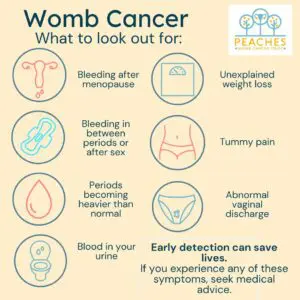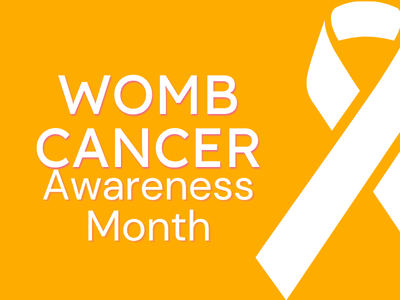Womb cancer, also known as endometrial and uterine cancer, affects approximately 9,700 people annually, that’s 27 people every day in the UK**. Despite this, our recent survey reveals that around one in five UK women (18%) have never heard of womb cancer.
Peaches’ recent survey, conducted to highlight the need for greater awareness of the disease during Womb Cancer Awareness Month this June, found that over a third of women in the UK (34%) believe that the cervical screening program detects womb cancer.
Cath Kennedy, Clinical Nurse Specialist at Peaches Womb Cancer Trust said:
“During Womb Cancer Awareness Month, Peaches want more women to hear about womb cancer, know the signs and when to seek medical advice. We want to highlight that the cervical screening program aims to reduce the incidence of, and mortality from, cervical cancer not womb cancer. Very occasionally, abnormal cells can indicate the possibility of womb cancer and the need for further investigation. However, a ‘normal’ cervical screening result does not rule out womb cancer. Any symptoms should be investigated by your GP or healthcare professional separately – don’t rely on the result of your last test or wait for your next cervical screening.”
The main symptom of womb cancer is abnormal vaginal bleeding.
If you are post-menopausal (you haven’t had a period for 12months or more), this is any vaginal bleeding, including spotting or discharge which can be pink, red, brown or watery.
If you are pre-menopause you may notice your periods are heavier than normal, bleeding between your periods and/or after sex, an abnormal vaginal discharge, persistent tummy pain, blood in your urine, unexplained weight loss.
It is important to note that there are many conditions that can cause these symptoms, they do not necessarily mean you have cancer, but if you notice any of these symptoms, we recommend contacting your GP for further investigations.
Most women diagnosed with womb cancer are over 50 years of age and have gone through the menopause, but womb cancer does affect younger women too. When diagnosed at an early stage, womb cancer is often treatable. When diagnosed at early stages, 1 and 2, the survival rate is 92%. When the disease is diagnosed at later stages, 3 and 4, the survival rate reduces to 15%. Currently 1 in 5 women, or people with a womb, are diagnosed at advanced stages**.
Peaches want to change that and save lives.



